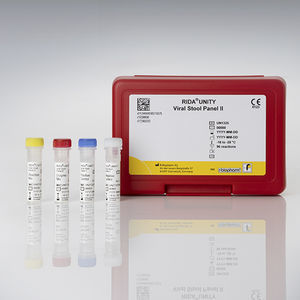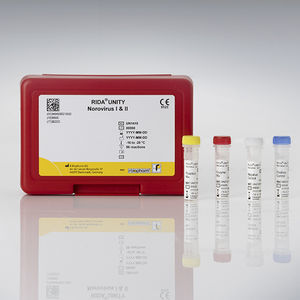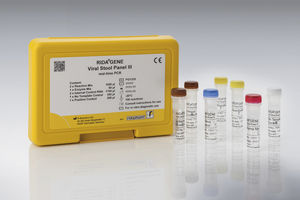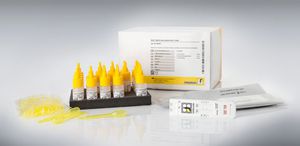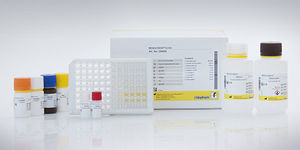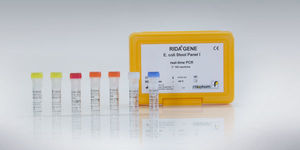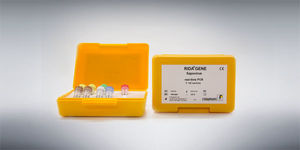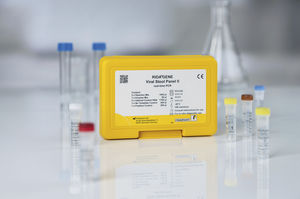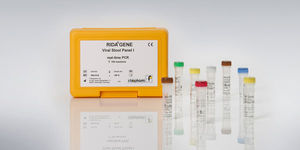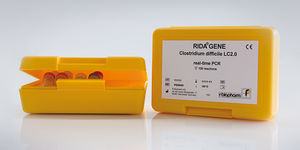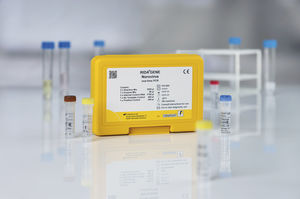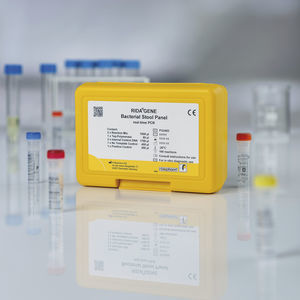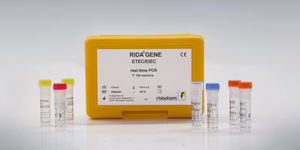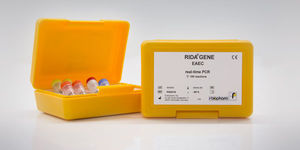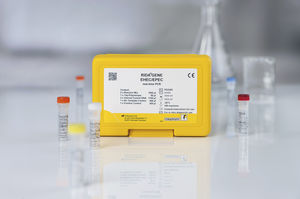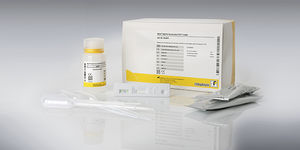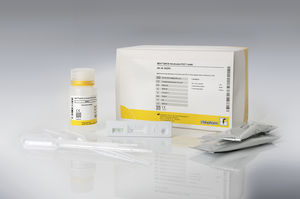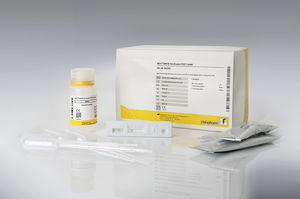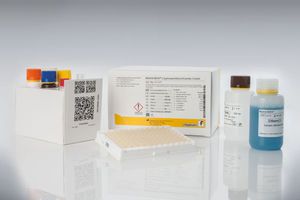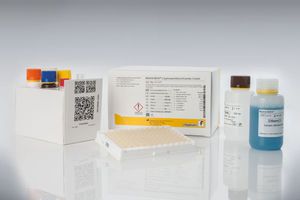
Yersiniosis test kit SeraSpot® IgAIgGIgM

Add to favorites
Compare this product
Characteristics
- Applications
- for yersiniosis
- Tested parameter
- IgA, IgG, IgM
- Micro-organism
- enterobacteriaceae
- Sample type
- serum, plasma, synovial fluid
- Analysis mode
- ELISA
- Result display time
90 min
Description
The SeraSpot® Anti-Yersinia-6 IgG / SeraSpot® Anti-Yersinia-6 IgA test is an in vitro diagnostic device (spotimmunoassay, SIA) for the detection of Yersinia-specific IgG or IgA antibodies in human serum, plasma or synovial fluid samples. It can be used as screening assay as well as confirmatory assay after a positive ELISA result.
General information:
The genus Yersinia comprises gram-negative bacteria belonging to the family Enterobacteriaceae. There are at least three Yersinia species which are pathogenic to human: Y. pestis, Y. pseudotuberculosis and Y. enterocolitica. More than 60 serovariants are known from Y. enterocolitica (6, 11). The infection of humans is transmitted by the consumption of contaminated meat or sausages, unpasteurized milk or contaminated drinking water. The transmission by direct contact from person to person is rather seldom. The pathogens enter the Peyer´s patches of the small intestine, disseminate to lymphoid tissues and initiate a humoral immune response. In the first 2-3 weeks after the infection IgA and IgM class antibodies are dominating, then IgG antibodies are mainly detectable, which usually persist for several years. In cases of immunopathological complications and chronic forms of Yersinia infections IgA antibodies are detectable for a longer period of time. In patients with reactive arthritis IgA antibodies to specific Yersinia antigens may persist for up to 1 year. In these patients the corresponding antibody class is also detectable in the synovial fluid.
The human pathogenic Yersinia species are characterized by a 70 kb plasmid encoding for cytosolic, membraneous and releasing proteins.
Catalogs
Related Searches
- Reagent kit
- Assay kit
- Solution reagent kit
- Blood assay kit
- Serum assay kit
- Immunoassay assay kit
- Plasma assay kit
- Diagnostic reagent kit
- Rapid lateral flow test
- Infectious disease assay kit
- Immunoassay rapid diagnostic test
- Molecular test kit
- Respiratory infection test kit
- Clinical assay kit
- Cassette assay kit
- Lateral flow test kit
- Infectious disease rapid diagnostic test
- COVID-19 assay kit
- Real-time PCR test kit
- ELISA assay kit
*Prices are pre-tax. They exclude delivery charges and customs duties and do not include additional charges for installation or activation options. Prices are indicative only and may vary by country, with changes to the cost of raw materials and exchange rates.



